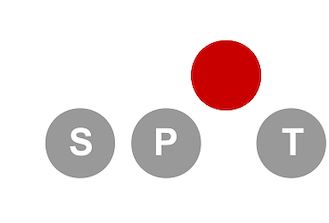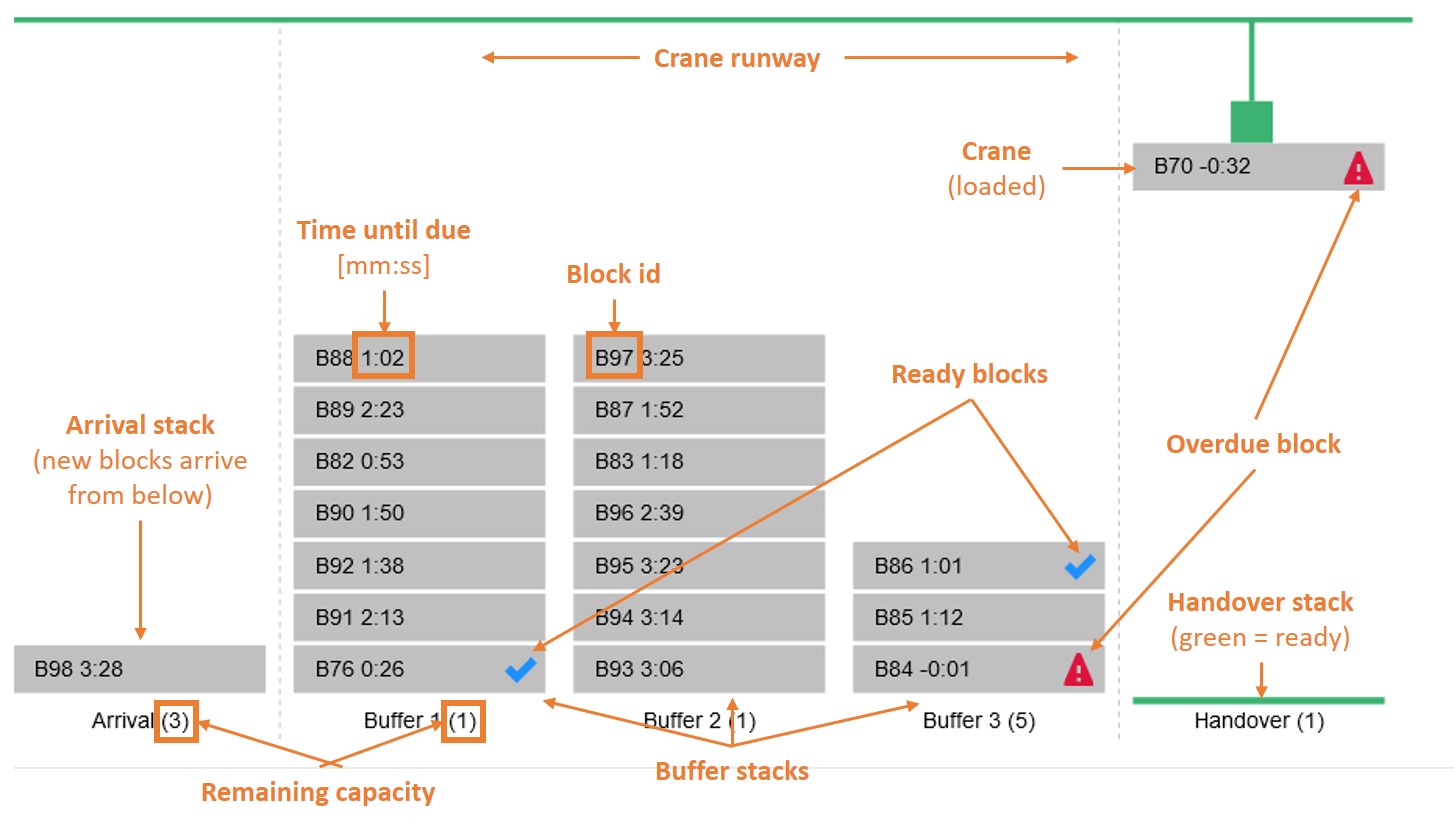
In this competition we give you a server where you can delve into two challenging and mysterious worlds of blocks and stacks. The hero in these worlds are robotic cranes that are fearlessly stacking and delivering blocks. Did you ever wish to take control of such a robot solving a herculean task? Well, now is your chance! Our cranes want to do a good job and therefore rely on YOUR optimization skills! They wait for you to tell it which blocks to pick up and where to drop them off so that the continuing stream of incoming blocks is dealt with most effortlessly. Competition webpage: https://dynstack.adaptop.at
A 15 minutes getting started tutorial is available on the competition webpage which shows how you can run a (pretty bad) sample policy. This is implemented in four different languages: C++, Python, C#, and Rust. However, you can use any other programming language that you like! The basic requirements is that you have an implementation of ZeroMQ and Protobuf. We aimed to make the topic of optimization in dynamic or uncertain environments as easy to approach as possible and yet create a challenging and also rewarding experience.
There are two tacks with increasing complexity and challenge. Each time you have one hour in real-time where you decide on the cranes’ actions. In the first track “Hotstorage” you are controlling one crane that serves one arrival stack and one handover stack using a range of buffer stacks. In the second track “Rolling mill” you are controlling two cranes with capacity > 1 that serve a larger number of arrival stacks and two handover stacks. You can compete in either or both tracks. You are given certain training scenarios to test your solver with.
This competition is hosted by Andreas Beham, Stefan Wagner, Sebastian Leitner, Johannes Karder, and Bernhard Werth at the University of Applied Sciences Upper Austria (https://fh-ooe.at/en) Hagenberg Campus within the research project Josef Ressel Center for Adaptive Optimization in Dynamic Environments (https://adaptop.at) led by Stefan Wagner and funded by the Christian Doppler Forschungsgesellschaft (https://www.cdg.ac.at/en). If you have any questions, comments, or suggestions, please don’t hesitate to contact us at dynstack@adaptop.at!
You can also publish a 2-page summary of your contributions in the Companion Materials of the Proceedings of ACM Genetic and Evolutionary Computation Conference (GECCO 2021). Deadline for these 2-page summaries is April 12th. Instructions are given [*], however, only 2 pages are allowed. Submission to the GECCO proceedings is not required to participate in the competition, nor is it required to attend GECCO. The announcement of the winner will be made during GECCO 2021.
We hope that you will have fun participating in this challenge! The deadline is Saturday June, 27 2021 (anywhere in the world). For more information please visit our webpage https://dynstack.adaptop.at

